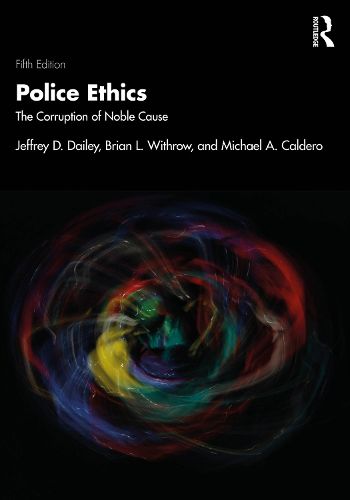Readings Newsletter
Become a Readings Member to make your shopping experience even easier.
Sign in or sign up for free!
You’re not far away from qualifying for FREE standard shipping within Australia
You’ve qualified for FREE standard shipping within Australia
The cart is loading…






Police Ethics: The Corruption of Noble Cause, Fifth Edition, provides an analysis of corruption in law enforcement organizations. The authors argue that the noble cause - a commitment to "doing something about bad people" - is a central "ends-based" police ethic. This fundamental principle of police ethics can paradoxically open the way to community polarization and increased violence, however, when officers violate the law on behalf of personally held moral values. This book is about the power that police use to do their work and how it can lead police officers to abuse their positions at the individual and organizational levels. It provides students of policing with a realistic understanding of the kinds of problems they will confront in the practice of police work.
This new edition offers police administrators direction for developing agency-wide corruption prevention strategies through an application of the Model of Circumstantial Corruptibility. In response to recent issues affecting the relationship between police departments and minority communities, like the Black Lives Matter organization and the death of George Floyd, this new edition provides workable solutions. Finally, this edition contains a discussion on what might be an emerging trend in American policing the authors call the over-politicization of the policing function.
$9.00 standard shipping within Australia
FREE standard shipping within Australia for orders over $100.00
Express & International shipping calculated at checkout
Stock availability can be subject to change without notice. We recommend calling the shop or contacting our online team to check availability of low stock items. Please see our Shopping Online page for more details.
Police Ethics: The Corruption of Noble Cause, Fifth Edition, provides an analysis of corruption in law enforcement organizations. The authors argue that the noble cause - a commitment to "doing something about bad people" - is a central "ends-based" police ethic. This fundamental principle of police ethics can paradoxically open the way to community polarization and increased violence, however, when officers violate the law on behalf of personally held moral values. This book is about the power that police use to do their work and how it can lead police officers to abuse their positions at the individual and organizational levels. It provides students of policing with a realistic understanding of the kinds of problems they will confront in the practice of police work.
This new edition offers police administrators direction for developing agency-wide corruption prevention strategies through an application of the Model of Circumstantial Corruptibility. In response to recent issues affecting the relationship between police departments and minority communities, like the Black Lives Matter organization and the death of George Floyd, this new edition provides workable solutions. Finally, this edition contains a discussion on what might be an emerging trend in American policing the authors call the over-politicization of the policing function.